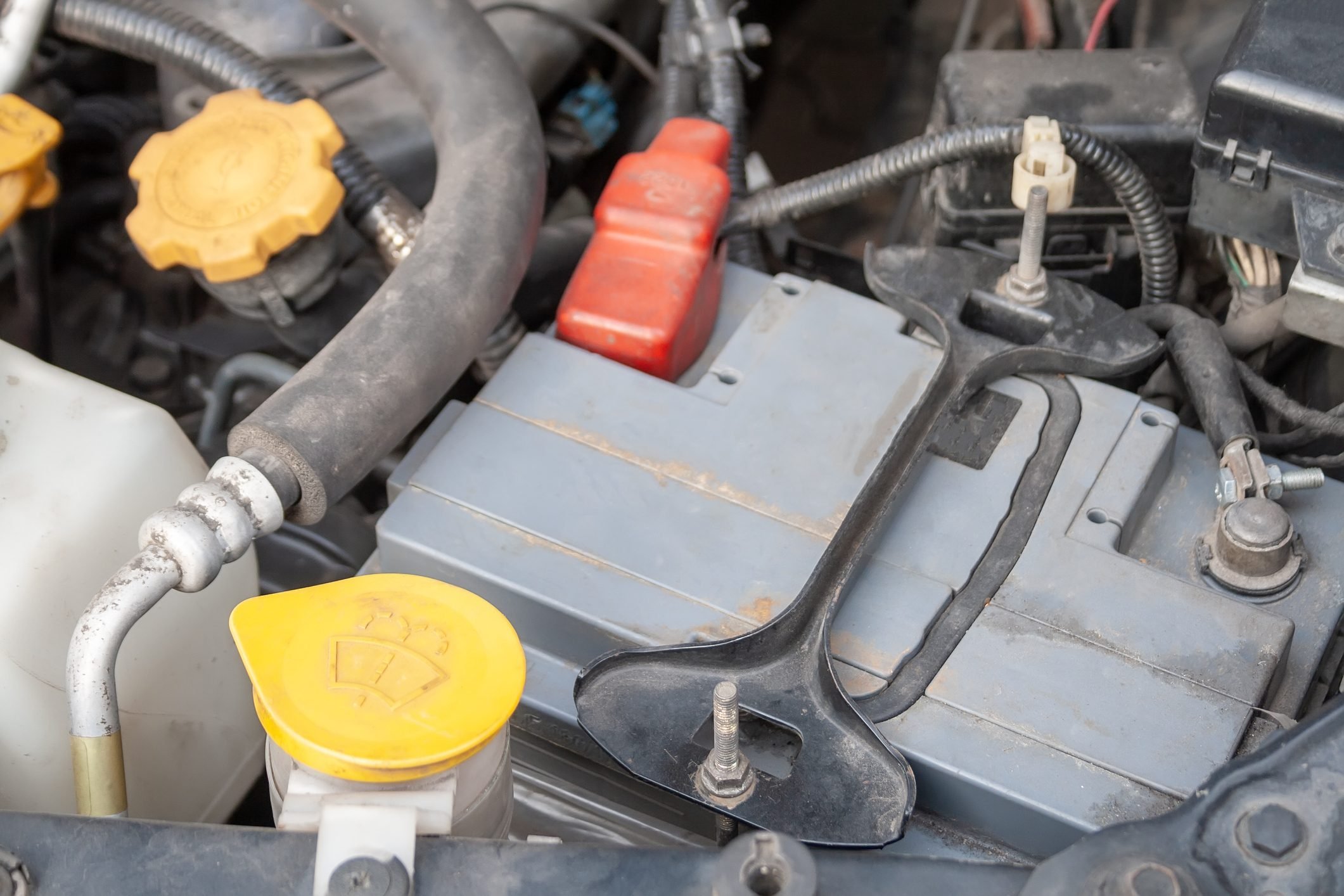

With the negative car battery terminal connected to the frame, covering only the positive battery terminal minimizes the dangers of short circuits.
Let’s say you’ve got your car’s front hood up and you accidentally set a wrench on top of the battery. If the wrench touches both the positive (+) and negative (-) battery terminals, it could cause a spark that ignites the battery’s mixture of hydrogen and oxygen gases.
And there will be an explosion.
Battery terminal covers greatly reduce the risk of this happening. New covers provide a professional look while protecting battery terminal ends from shorting and corrosion.
Made from PVC, rubber or plastic, a car battery terminal cover shields a battery cable terminal to protect it from damage and creating a short circuit. They come in different colors: red for the “hot” 12-volt positive terminal, and black for the negative “ground” terminal.
A short circuit is a dangerous connection between two parts of an electrical circuit that should never touch each other. Both top- and side-post batteries should have battery terminal covers.
Battery terminal covers greatly reduce the chances of accidentally short-circuiting battery terminals to each other, or the 12-volt positive terminal to ground. They also help protect battery terminals from corrosion-causing contaminants and keep the engine bay looking spiffy.
Although most vehicles come with two battery terminal covers, only the positive battery terminal needs to be covered. Why? Because the positive terminal carries 12 volts and can easily short circuit.
But the volts aren’t the problem — it’s the scary number of amps (more than 400) a car or truck battery can produce if the positive battery terminal becomes shorted to ground. You can easily melt or weld one-quarter-inch-thick aluminum with 250 amps!
Any conductive material that short circuits will quickly become hot enough to melt metal or skin, as well as cause dangerous sparking which can quickly ignite battery gases.
Covering the negative terminal protects it from corrosion.
If your vehicle lacks battery terminal covers, you can install new ones when servicing your battery. Here’s how:
Remove both battery cables. Always remove the negative cable first.
It may be tricky sliding the new covers over the cable terminals. Try coating the cable end of the cover with a little petroleum jelly or clear silicon gel to help ease it over the terminal. If that doesn’t work, cut a slit in the small end of the cover to slide it over the battery cable, then secure it in place with a small plastic zip-tie. Or you can leave this task for your mechanic.
Safety first! A battery contains sulfuric acid that can cause serious burns. Always wear gloves and eye protection when working around a battery or jump-starting a car. If you come into direct contact with battery acid, flush with plenty of water and seek medical attention immediately.
Originally Published: September 23, 2022
Bob LacivitaSince rebuilding his first engine at age 14, cars have been Bob Lacivita's passion, as well as his way of life. He went on to become an award-winning ASE and General Motors auto technician, vocational educator, career and technical center administrator, technical consultant and freelance writer; teaching legions of students and readers about DIY ca.